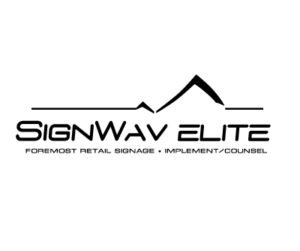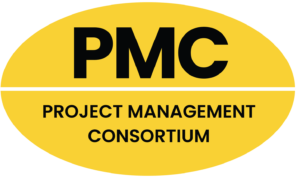Effective project management is an essential element of success in the construction industry. The ability to consistently deliver projects within established timelines, budgets, and quality standards is pivotal to maintaining a competitive edge in a rapidly evolving market. In this article, we will delve into the fundamental principles and best practices of efficient project management in construction, encompassing various stages from initial planning and design through execution to successful completion. By implementing these strategies, construction professionals can optimize operations, minimize delays, and achieve superior project outcomes.
- Comprehensive Project Planning
A successful construction project relies heavily on a solid planning phase. This includes important steps like feasibility studies, analyzing site conditions, and clearly defining project objectives and scope. It’s crucial to involve all relevant stakeholders during this stage to establish a shared vision and tackle potential challenges head-on. Thorough feasibility studies help assess if the project is viable and identify any risks or obstacles. Analyzing site conditions helps understand unique aspects of the location and allocate resources effectively. Defining project objectives and scope sets the foundation for the entire project, ensuring everyone is on the same page. By prioritizing comprehensive project planning, construction teams can set themselves up for success, minimize risks, and increase the chances of delivering a high-quality, on-time, and within-budget outcome.
- Embracing Technology
Embracing technology is essential for modern construction projects, as it offers significant benefits to the industry. Construction management software, Building Information Modeling (BIM), and various digital tools play a pivotal role in streamlining operations. They facilitate efficient collaboration, enabling project teams to work seamlessly together, regardless of their physical locations. These technologies also enhance project tracking and communication, allowing stakeholders to stay updated on progress and potential challenges in real-time. By integrating technology into construction processes, teams gain immediate access to critical project data, empowering them to make informed decisions swiftly. Additionally, technology aids in faster issue resolution by providing insights and solutions based on data analysis. Embracing technology not only improves overall project efficiency but also boosts productivity, minimizes errors, and reduces project delays, ultimately leading to successful project outcomes in the modern construction landscape.
- Risk Management
Risk management is a crucial element in construction projects due to their exposure to uncertainties like delays, cost overruns, and regulatory changes. To address these challenges, a comprehensive strategy is necessary, starting with identifying potential risks and evaluating their impact. Developing contingency plans to mitigate these risks ensures timely and effective responses when they arise. Regular risk assessments throughout the project’s lifecycle enable proactive adjustments and prevent minor issues from escalating. By embracing risk management, construction projects enhance their chances of successful delivery, staying on track with budgets, schedules, and quality targets.
- Effective Cost Control
Effective cost control is a fundamental aspect of successful project management in construction. At the project’s inception, creating a detailed budget is crucial to establish financial parameters and guide decision-making. Throughout the project’s lifecycle, vigilant tracking of expenses ensures adherence to the budget and financial viability. Identifying cost-saving opportunities is equally important, but it must not come at the expense of compromising the project’s quality and safety standards. Striking the right balance between cost optimization and maintaining high standards requires continuous monitoring and transparent communication among stakeholders. Emphasizing cost control measures not only safeguards the project’s profitability but also helps in resource optimization and risk mitigation. By proactively managing costs and making informed decisions, construction professionals can enhance their project’s efficiency and ensure successful outcomes that meet budgetary constraints while upholding quality and safety principles.
- Clear Communication Channels
Clear communication channels are indispensable in construction projects to prevent misunderstandings and foster a cohesive team. Establishing transparent lines of communication among stakeholders, including contractors, subcontractors, suppliers, and clients, promotes a shared understanding of project goals and expectations. This transparency helps resolve conflicts promptly and efficiently, minimizing disruptions to project progress. Regular progress meetings and status reports facilitate smooth information flow, allowing for collaborative problem-solving and the sharing of valuable insights. Effective communication cultivates a culture of trust and teamwork, enabling construction professionals to work cohesively toward shared objectives. By emphasizing clear communication channels, construction projects can avoid delays, minimize conflicts, and improve overall project efficiency and success.
- Resource Management
Resource management is a critical aspect of construction project management, involving the efficient allocation of labor, materials, and equipment. Striking a balance in resource distribution is essential to avoid bottlenecks and optimize productivity. By effectively managing resources, project managers can minimize waste and reduce the project’s environmental impact. Utilizing resources optimally not only ensures smooth project execution but also contributes to cost-effectiveness and sustainability. A well-executed resource management plan enables construction teams to meet project timelines and quality standards while making responsible use of valuable resources, aligning the project’s success with environmental stewardship.
- Streamlined Project Scheduling
Streamlined project scheduling is crucial for on-time project delivery in construction. Creating a well-structured schedule is essential, and techniques like the Critical Path Method (CPM) help identify critical tasks that may impact the overall timeline. Adherence to the schedule requires constant monitoring and proactive measures to address any deviations promptly. By efficiently managing the project schedule, construction teams can minimize delays, improve resource allocation, and enhance overall project efficiency, leading to successful and timely project completion.
- Quality Assurance and Control
Quality assurance and control are paramount in construction projects to meet or exceed quality expectations. Implementing a robust program ensures that construction work adheres to industry standards and regulatory requirements. Regular inspections, testing, and audits play a vital role in maintaining consistency and identifying potential issues proactively, ultimately preventing costly rework and ensuring the delivery of a high-quality final product. By prioritizing quality assurance and control, construction teams can instill confidence in stakeholders, enhance project outcomes, and uphold their reputation in the industry.
- Emphasis on Safety
Emphasizing safety is non-negotiable in construction project management. Prioritizing safety measures safeguards workers, reduces accidents, and prevents delays caused by injuries or regulatory compliance issues. By implementing safety training, conducting hazard identification, and continuously monitoring the construction site, a safety-oriented culture is fostered, ensuring the well-being of workers and the overall success of the project. By placing safety at the forefront, construction teams can create a secure work environment, improve productivity, and build a positive reputation in the industry for responsible and ethical practices.
- Post-Completion Evaluation
Post-completion evaluation is a crucial step in construction project management. Conducting a comprehensive review allows teams to learn from both successes and failures. By analyzing aspects such as schedule adherence, cost management, and quality outcomes, valuable insights are gained for future projects. This evaluation process helps refine project management strategies, identify areas for improvement, and implement best practices, ultimately enhancing overall project performance and ensuring continuous growth and success in the construction industry.
In construction projects that impact existing buildings or offices, temporary office spaces are often required for project managers and stakeholders. Party equipment rental like Boomin Bounce can be utilized in innovative ways to establish comfortable and conducive temporary spaces for meetings and discussions, adding a distinctive touch to project management.
Efficient project management is the backbone of successful construction endeavors. By emphasizing comprehensive planning, adopting technology, managing risks, controlling costs, and fostering open communication, construction professionals can optimize project outcomes. Prioritizing safety, adhering to quality standards, and evaluating project performance post-completion contribute to continuous improvement and the growth of the construction industry. By embracing these principles, construction projects can thrive in an increasingly competitive landscape, delivering exceptional results and exceeding client expectations.
































